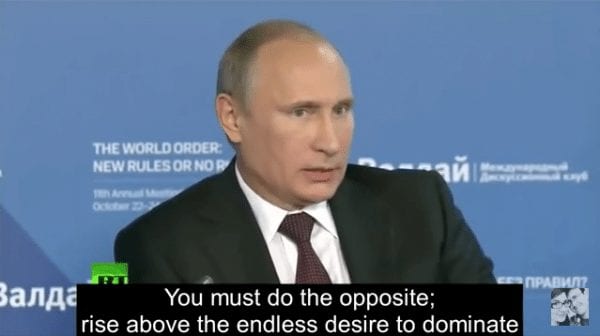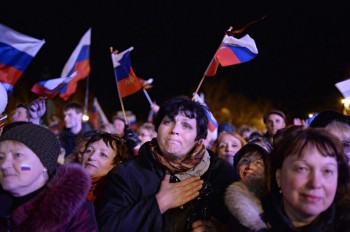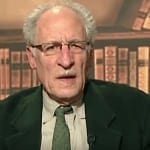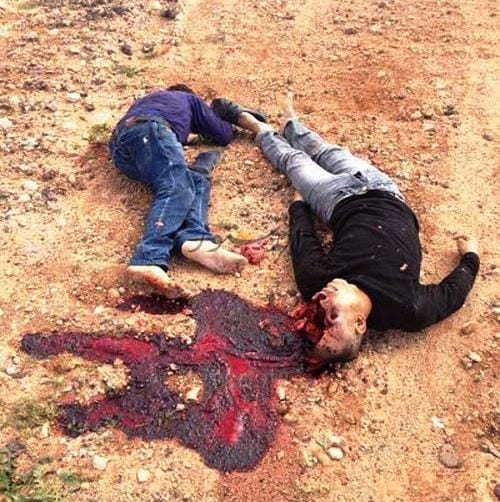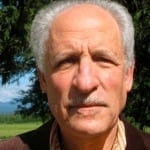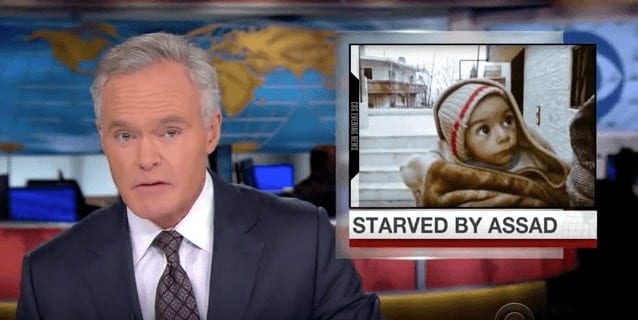SIDEBAR ENDS HERE. REGULAR TEXT RESUMES
[dropcap]T[/dropcap]his laager mentality is no different from other reactionary beliefs justifying ones exclusive rights over another – a source of racism. It applied to colonization, slavery, ethnic cleansing of continents, apartheid South Africa and to Israel.
My parents were not intellectuals or political thinkers. Many of my generation did far better than I at school. I never even got a university degree. They supposedly had the same Jewish heritage. We came from similar backgrounds, had same parental love and opportunities. Why then did I – and a few like me then and now – act in general for others and not simply for self?
“Narrowness, sectarianism, living in a cocoon, exclusively bound within one’s own tribe, undermines universal justice and the meaning of liberty, equality, fraternity.”
That’s a many-layered question. I reckon the big turning point in my life came when I asked my mother sometime in 1945 whether black people in South Africa were being treated like Jews in Germany. She was a kind, simple woman, with the sense to tell her young son that although Africans were not being thrown into gas ovens in concentration camps, the evil starts with racial prejudice and cruelty. It can then get out of hand.
That was the similarity. That was the most important lesson of my life. My friends would surely have asked such questions. My lived experience is that they were fobbed off, their minds kept shut.
My understanding of the Jewish heritage is, as Rabbi Hilel put it over 2000 years ago: “Do not unto others which is hateful to you.” Well, actually, is that not true of the sacred message of all religions and creeds? “Do unto others as you wish them do unto you?”
I believe narrowness, sectarianism, living in a cocoon, exclusively bound within one’s own tribe, undermines universal justice and the meaning of liberty, equality, fraternity.
The first political meeting I attended of the ANC-aligned white Congress of Democrats opened my eyes. I thought the likes of Luli Callinicos, Mary Turok and Helen Joseph were all Jews because they appeared kindly, like some of the thinking Jews I knew. I soon discovered I was the only Jew present – a good lesson in breaking away from stereotypical imaginings.
Undoubtedly my misperception was fed by the reality that among the whites, that the tiny minority who identified with the Struggle, were overwhelmingly Jewish.
JS: Perhaps you were more fortunate than most in that you spent time as a young adult in the creative industries, but what was the atmosphere then, in the late 1950s into the early part of the 1960s, around so-called racial mixing?
RK: As I approached matric year and learnt from our history teacher at King Edward (KES) about the French Revolution – he helped us see the equivalents of aristocrats and serfs in South Africa’s colonial apartheid system – I consciously inclined towards crossing the color line.
I had become appalled by apartheid and wished to forge a new existential identity inspired by Jean-Paul Sartre’s books. Making my own choices I felt would free me from the baggage of typical whiteness.
This came naturally because I was a rebel by nature. I dispensed with the standard hair parting and dyed my forelocks blond as a token of revolt thus foregoing prefect-status and sports colours at school. Leaving school I inclined to the Bohemian circles of Hillbrow, mixed with lesbians and gays, artists, poets, musicians, writers. I forged friendships with the Drum, Golden City Post journalists and went to racially mixed parties.
I enjoyed liaisons with beautiful black women and found we were all the same under the skin.
Some school pals were horrified with my behavior, actually more with my having gay friends than crossing the color line, since at Wits, such behavior was not unknown.
JS: You’ve said the Sharpeville Massacre prompted you to join the ANC. Please describe how it affected you.
RK: The Sharpeville massacre hit me with the force of an express train. I was at work when it happened and argued with the white workers. They scoffed at me: “Don’t you realize we sink or swim together.”
They were angry at the way I fraternized with the black workers who gave me leaflets issued by the ANC. I argued with family and friends and felt isolated. Even the crowd I partied with, while critical of the shootings, were merely inclined to go on drinking and debating.
I realized my existentialism was no answer. I could not be free unless the black majority was liberated. That required action. I took holiday leave that Easter and headed for Durban to contact my communist cousin Jackie Arenstein and her lawyer husband Rowley. That set me on the active road to freedom and my entire being was changed and fashioned by the common struggle of our people.
I would never change that, whatever the vicissitudes of life.
JS: How did those around you react to what some must have seen as you embracing black people?
RK: When I became actively involved, my parents were most anxious but stood loyally by me from banning to disappearing underground and going into exile in 1963.
I had previously married a Hillbrow woman who loved the township jols but was frightened off by the political activism which led to an early divorce. My next marriage to fellow activist Eleanor Logan, who shared my views, led to a 45-year marriage until her death in 2009.
Life in the liberation struggle was far more emotionally meaningful and enriching than in my past racial and ethnic persona. Well, I was unaware of that in 1960 but by then I believe I had shed any fundamental racial prejudices…male chauvinism took longer to consciously combat.
I did not succumb to racist brainwashing through school, society, environment owing to the psychological impact of the early formative years I have referred to. At an early age I saw the ugliness of racism and it repelled me. The Jewish aspect played a part but I do not believe it was fundamental. However what would have been necessary was having a mother like I was fortunate to have who kept my childhood basic instincts flowing.
I believe children are innately decent. It is when a negative socialization intervenes in the guise of parents, education, friends, social system that the wrong values are inculcated and difficult to correct whether by self or external intervention.
JS: Within four years of Sharpeville, you were in Odessa in the USSR, receiving training. Did your experience there change you even more deeply around race?
RK: I’ll never forget the impact the Soviet Union made on MK cadres training there in Odessa, Moscow, the Crimea and elsewhere through the sixties and seventies.
My 1964 year, all 200 of us, with me the only non-black, excelled in the environment, the training, the comfort and care.
From Soviet instructors, to female kitchen staff, we were treated as family. Young black recruits from all over our country were cooked for, waited on at table, taught by an officer core that had fought the fascist invaders.
On weekends we had pocket money and were free to discover Odessa and attend its Officers’ Palace where dances took place Saturday evenings. Some older comrades developed relationships with the many Soviet war widows and sometimes I would accompany them for Sunday lunch. Old Ngapepe, from the Eastern Cape, was clucked over by his romantic attachment, and wore gown and slippers in her modest home.
Political classes fortified our understanding and the easy wit of the lecturers had us laughing with such comments as “Comrades, Revolution is not Rock and Roll.” It was Marxism and its class basis that deepened our understanding and explained the role that racism played in conquering territory and nations, dividing workers and people, creating myths, furthering exploitation and fermenting wars – all to further the interests and power of the capitalists and their imperialist system.
Whatever problems the Soviet enterprise faced that led to its collapse, the positive experience has not been forgotten.
There were negative racial attitudes and there was racist conduct by Soviet citizens towards African students in the USSR (and other countries of the socialist bloc), which MK trainees were perhaps spared. But it was nothing like the lynchings and police massacres in the US. Unlike the US, the authorities in the USSR actively tried to enforce racial equality.
JS: What was it like to mix with true non-racial people at that time? You knew Joe Slovo, Albie Sachs, Bram Fischer, Walter Sisulu, JB Marks, Moses Kotane, Oliver Tambo, Chris Hani, Thabo Mbeki…the list goes on.
RK: I was fortunate to interact with the senior figures by 1965 and they had an indelible impact on me. In those early years, and before familiarity became rooted, I regarded the older comrades as virtual saints – when one became aware of particular weaknesses and egos that only made them more human.
They worked in the first place to serve the people. They made huge sacrifices. They had solid principles and were of great moral integrity. This does not mean they were infallible. They were for the working class and the poor, the emancipation of the African majority and minority groups, and the liberation of all our people – including the whites.
White comrades such as Rica Hodgson and Brian Bunting did not believe they were exceptional, but I know that, once in prison together (in 1960, during the State of Emergency), they spoke about their belief that white people could change and that they were but among the first “through the door” (having freed themselves from racial prejudice).
When you rubbed shoulders with the likes of Yusuf Dadoo, Marks, Duma Nokwe, Pallo Jordan, Mbeki, you felt absolutely equal under the skin.
JS: In your experience, are many or even most white people, specifically white South Africans, racist in some way?
RK: Black people are best placed to provide an answer. Regrettably it appears far too many whites remain out there with backward ideas and prejudices.
The list of white democrats and communists from the Struggle years were a minority of a minority. Yet in looking at how the numbers increased, gives cause for hope.
But while government needs to be doing more, the reason there is so little headway is owing to the resistance of the whites. The bloc voting of the white minority – first for the Nats in 1994; and since 1999 for the DA is a manifestation of that resistance of the majority of whites.
The Sparrows and Kohler-Barnards are the tip of the iceberg.
It is misleading to generalise. The list of white democrats and Communists from the Struggle years were a minority of a minority. Yet look how the numbers increased. That’s not only those who went to prison, but hundreds who, over the decades, protested against apartheid, from the Black Sash to the universities, and as the tempo of struggle increased, died in detention like Neil Agget, gunned down like David Webster.
I do not believe all or most whites are racist. Yes, we need to act firmly when racism rears its ugly head, with a skilled police and judicial service operating in a transparent and just manner, we need to enforce our Bill of Rights and knowledge of the Constitution, we need the start of a sustained civic education program in schools and society at large.
Our leaders need to be clear about what racism is and give positive and creative leadership.
It’s one heck of a task but it needs to be tackled sooner than later.
JS: Since your outspokenness about some positions of and individuals in the ANC, has anyone dared to brand you a racist?
RK: So far they have confined their cheap slanders to “traitor,” “counter-revolutionary” and “agent of foreign intelligence services” and in the case of Blade Nzimande, “factory rejects.”
I was once referred to as a Boer in an Angolan camp where minor defiance by 1976 recruits took place. The culprit was none of the young black-conscious influenced cadres but an older man newly arrived from home who sought to win their respect.
JS: Has the neo-liberal formula, which the ANC essentially agreed to in 1994, allowed racist thought to flourish, through retaining the power of white capital and supporting elites?
RK: I do believe the compromises made with regard to the economy have resulted in those consequences. Not that the centuries of ingrained colonial racism would disappear overnight. Not that it was easy to remove statutory apartheid and achieve universal franchise and the establishment of democratic rule.
These have been momentous achievements under the ANC’s leadership.
The advent of majoritarian political power and demise of minority white rule took years of struggle and sacrifice and is akin to revolutionary change. But the compromises which left existing economic and property relations largely intact; the heights of the economy in white hands and under the diktat of international monopoly capital, are a fetter to real economic emancipation.
The biggest problem is the growing inequality between well-off whites and the majority of black people. And that chasm is growing economically, socially and in the realm of opportunity.
To be sure, the Mandela-Mbeki government, myself included, believed that once we had political power, we could by degrees refashion the economy to meet our people’s needs. It can be argued there was no other way. Perhaps the demise of our once-powerful ally, the Soviet Union, as a counter to Western capitalist control, left no alternative.
“The biggest problem is the growing inequality between well-off whites and the majority of black people.”
So we traded off commitment to radical economic change for political power. Kwame Nkrumah once stated: “First comes the political kingdom.” We had constantly critiqued that as a formula for disaster. Those who controlled the economy would be the hidden masters of the new political elite, who would inevitably be caught up in a system of corruption and crony capitalism.
We used to call that neo-colonialism and warned of the dangers of a new black elite becoming junior partners of big business and agents of international capital, as elsewhere in post-colonial Africa. It would be impossible to address the people’s needs.
This is why I have characterised the compromises as a Faustian Pact, where power and wealth in the classical tale were granted by the devil to Faust in exchange for his soul.
Growing unemployment and poverty, the concentration of massive wealth in fewer hands while the majority starve, are part of the toxic mix providing fertile ground for the poison of racism.
The have-nots rebel; the ignorant seek refuge in their white skins. Corporate heads consign thousands of workers into unemployment at the stroke of a pen and have no compunction about shooting down striking workers.
Lest I am accused of wanting to obstruct black people becoming capitalist and preserving that class formation for whites.. that is not the case. We cannot debar anyone who wants to be one from becoming a capitalist. That class is now slightly de-racialised, with a handful of high profile blacks. From a racial point of view that is an advance which is better than the constraints of apartheid but cannot be the solution.
But poverty and inequality are growing and are highly racialized and gendered, with African women the poorest and most brutally exploited.
JS: Where are we, in terms of racism? Are you disheartened?
RK: I have referred to some notorious incidents. On social media idiots vent their spleen. I believe such ignoramuses are a minority, but if left unstopped, if we just prattle on papering over the cracks, the demon of racism and xenophobia will grow.
I am certainly not disheartened – only realistic. The menace can be stopped by mobilizing black and white people in support of the best human values of tolerance and fairness.
We need sustained education campaigns. We need mobilization, all singing from the same page, and we need tough policy and action from government.
The message must be rational and balanced, able to persuade and transform people’s values and thinking. People must not feel targeted but won over as part of the process.
However, unless we tackle the root cause of the problem – the economic disparity giving rise to immense inequality and the polarization of wealth and poverty as never before in history – we cannot fully vanquish racism, as we see in the violence against blacks in America or in the racism against migrants in Europe or the sheer hatred for Palestinians in Israel.
JS: Is an entirely non-racial future a mythology?
RK: I do not believe that a non-racial future is a mythology. A people awake and united can achieve great things. In that respect I am a believer and an optimist committed to keeping the fires of hope alive.
About the Author
Ronnie Kasrils is a former commander of Umkhonto we Sizwe, a former Cabinet minister and a writer. He won the 2011 Alan Paton award for his book, The Unlikely Secret Agent.
